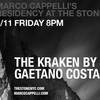Justice Denied?
Then came the ugly episode at the Diaz School, which resembled not so much a police operation as a wicked and violent abuse of power with the sole purpose of venting a repressed lust for revenge.
Andrea Camilleri, Il Giro di Boa
This is a story of a terrible crime, and how the perpetrators most likely will evade justice.
The crime: The atrocious violence against nonviolent protestors attending the 2001 G8 Summit in Genoa. Sickening brutality that rises (or sinks) to the level of torture.
The perpetrators: Italian police, police officials, and most likely right-wing politicians.
In July 2001, some 200,000 anti-globalization demonstrators converged in Genoa, which was hosting the G-8 Summit of world leaders. The overwhelming majority of protestors came to peacefully express their opposition to corporate-driven economic globalization. Yet the Italian police treated them as brutally as the Iraqis unfortunate enough to end up in the notorious U.S.-run prison at Abu Ghraib or the Chileans sent to the torture chambers of dictator Augusto Pinochet.
<!--{1216687</style>
This is not about the violence police employed against demonstrators in the streets, which resulted in injuries and the death of one protestor. It’s about what happened elsewhere, away from the cameras of the media, at a school housing the demonstrators and at a police detention center.
The British newspaper The Guardian reported July 17 that on Monday, July 14, fifteen police, prison guards and prison medics finally were convicted for their involvement in the violence. But it appears that none actually will serve prison terms. In Italy, defendants don't go to jail until they have exhausted the appeals process. Moreover, the convictions and sentences will be wiped out next year by a statute of limitations.
And as The Guardian’s Nick Davies explained, “…the politicians who were responsible for the police, prison guards and prison medics have never had to explain themselves.”
Davies notes that the horrific violence was not simply “the story of law officers running riot, but of something uglier and more worrying beneath the surface.” But before we get to the larger implications, a recap of the police riot itself is in order.
The demonstrators were being housed at the Diaz Pertini School, which the Genoa city council had made available to them. When the police poured into the school on the evening of July 21, some of them were shouting "Black Bloc! We're going to kill you." The Black Bloc is a small group of anarchists notorious for their violent tactics. But the protestors at the school had nothing to do with the Black Bloc. In fact, the school had posted guards to make sure none of them could get in.
Given this, it’s highly unlikely the cops really believed they were moving against a group of violent anarchists.
The invading cops swarmed over all four floors of the school, assaulting anyone they came in contact with. “Several victims,” Davies wrote, “describe a sort of system to the violence, with each officer beating each person he came across, then moving on to the next victim while his colleague moved up to continue beating the first. It seemed important that everybody must be hurt.”
The brutality continued after demonstrators were taken by police to the Bolzaneto detention center:
The 222 people who were held at Bolzaneto were treated to a regime later described by public prosecutors as torture. On arrival, they were marked with felt-tip crosses on each cheek, and many were forced to walk between two parallel lines of officers who kicked and beat them. Most were herded into large cells, holding up to 30 people. Here, they were forced to stand for long periods, facing the wall with their hands up high and their legs spread. Those who failed to hold the position were shouted at, slapped and beaten.
Shivering on the cold marble floors of the cells, the detainees were given few or no blankets, kept awake by guards, given little or no food and denied their statutory right to make phone calls and see a lawyer. They could hear crying and screaming from other cells.
One of the cops’ victims, Marco Bistacchia, “was taken to an office, stripped naked, made to get down on all fours and told to bark like a dog and to shout ‘Viva la polizia italiana!’ He was sobbing too much to obey.”
Fascist Hit Parade
The uniformed thugs of Genoa, however, didn’t demand submission only to their authority. “Some officers had traditional fascist songs as ringtones on their mobile phones and talked enthusiastically about Mussolini and Pinochet,” Davies reports. “Repeatedly, they ordered prisoners to say ‘Viva il duce.’ Sometimes, they used threats to force them to sing fascist songs: ‘Un, due, tre. Viva Pinochet!’”
One anonymous officer, perhaps pricked by a twinge of conscience, told La Repubblica that he had seen cops urinating on prisoners and beating them for refusing to sing that Fascist groove thing “Faccetta Nera.”
The purpose of all this abuse, Davies notes, was not to get the detainees to talk but simply to terrorize them: “And it worked. In statements, prisoners later described their feeling of helplessness, of being cut off from the rest of the world in a place where there was no law and no rules. Indeed, the police forced their captives to sign statements, waiving all their legal rights.”
What followed was almost as sickening as the brutality at the Diaz School and Bolzaneto. The Italian police lied to the media about what had happened, telling reporters “…as the bloody bodies were being carried out of the Diaz Pertini building on stretchers…that the ambulances lined up in the street were nothing to do with the raid, and/or that the very obviously fresh injuries were old, and that the building had been full of violent extremists who had attacked officers.”
The day after the police riot senior officers held a press conference to announce that everyone in the school would be charged with resistance to arrest and conspiracy to cause destruction. At the press conference, police displayed an array of what they described as weaponry. It turned out all of it -- crowbars, hammers and nails, aluminum knapsack frames, and two Molotov cocktails – had been planted at the school by the cops as the raid ended.
Italian courts ended up dismissing every charge against every person.
But this didn’t inhibit Genoa’s finest one bit. “With the courts refusing to charge the detainees, the police secured an order to deport all of them from the country, banning them from returning for five years. Thus, the witnesses were removed from the scene. Like the attempted charges, all the deportation orders were subsequently dismissed as illegal by the courts.”
Justice Compromised
None of the police crimes would have come to light if not for the persistence and courage of the prosecutor Emilio Zucca. Fighting official denial and obfuscation, he pursued his investigation for seven years, gathering statements from hundreds of witnesses and analyzing hours of video and thousands of photographs. (Zucca received invaluable assistance from British journalist Mark Covell, who was severely injured at the Diaz School.) In his report, he documented the denials by all senior police officers of any involvement and the contradictory and clearly false statements of police officers.
Davies notes that 28 other officers, including high-ranking cops, are being tried for their part in the Diaz School raid. “And yet,” he observes, “justice has been compromised. Not a single Italian politician has been called to account, despite “the strong suggestion that the police acted as though somebody had promised them impunity.” Davies reports that one unnamed minister visited Bolzaneto while the detainees were being mistreated “and apparently saw nothing or, at least, saw nothing he thought he should stop.”
And guess who else was on the scene. Gianfranco Fini, the “post”-Fascist pol who at the time was the deputy prime minister in Berlusconi’s second administration, was at the Genoa police headquarters. Fini, Davies notes, “has never been required to explain what orders he gave.”
Davies notes that most of the several hundred law officers involved in Diaz and Bolzaneto have never been charged with any crime or even disciplined; some, in fact, have gotten promotions. Moreover, the trial of the 28 officers who have been charged “is in jeopardy because the prime minister, Silvio Berlusconi, is pushing through legislation to delay all trials dealing with events that occurred before June 2002.”
Nick Davies concludes that what happened at the Diaz School and Bolzaneto detention center, as well as the ensuing police lies, obfuscation and cover-ups, “is about fascism.”
“This isn't fascism with jack-booted dictators with foam on their lips. It's the pragmatism of nicely turned-out politicians. But the result looks very similar.”
And now, in Italy, those fascist politicians, with their fine tailored suits, perma-tans and immaculately styled hair, are fully in charge. Their leader, Silvio Berlusconi, like all fascists, cannot tolerate an independent judiciary, so he continues to wage war against honest and dedicated prosecuting magistrates, like Emilio Zucca, absurdly accusing them of being communists engaged in an ideological vendetta.
Sicilian author Andrea Camilleri, in his novel Il Giro di Boa (published in English as Rounding the Mark), has his fictional alter-ego, Inspector Salvo Montalbano, express white-hot outrage over the Genoa events. In a phone conversation with his girlfriend Livia, he cries, “I never once fabricated evidence, not even against the worst criminals! Never! Do you realize what happened, Livia? The people attacking the school and planting false evidence weren’t a bunch of stupid, violent beat cops; they were commissioners and vice commissioners, inspectors and captains and other paragons of virtue!”
In today's Italy, these fine men can sleep easily, knowing they'll never have to answer for anything they've done.






































i-Italy
Facebook
Google+
This work may not be reproduced, in whole or in part, without prior written permission.
Questo lavoro non può essere riprodotto, in tutto o in parte, senza permesso scritto.